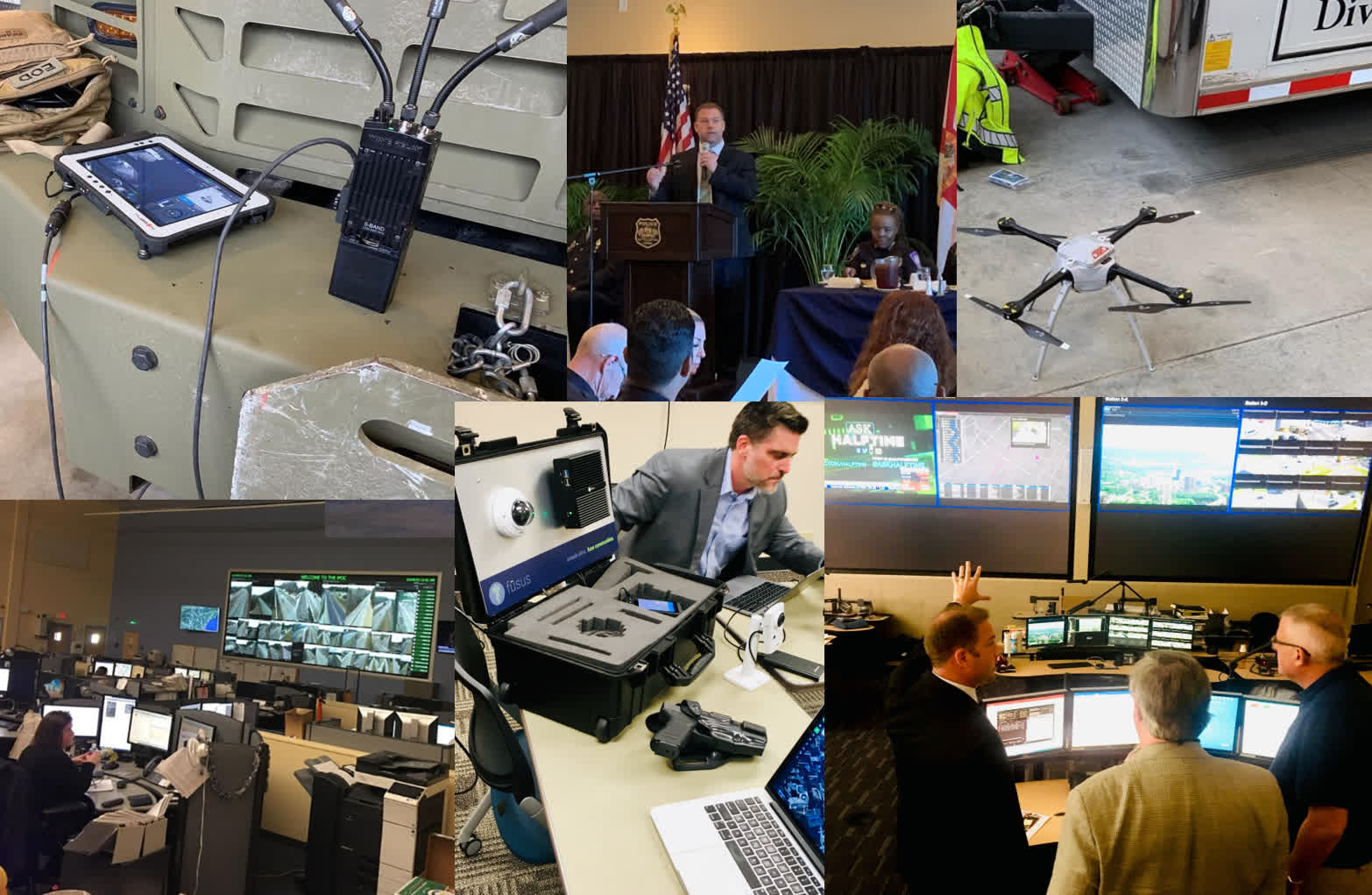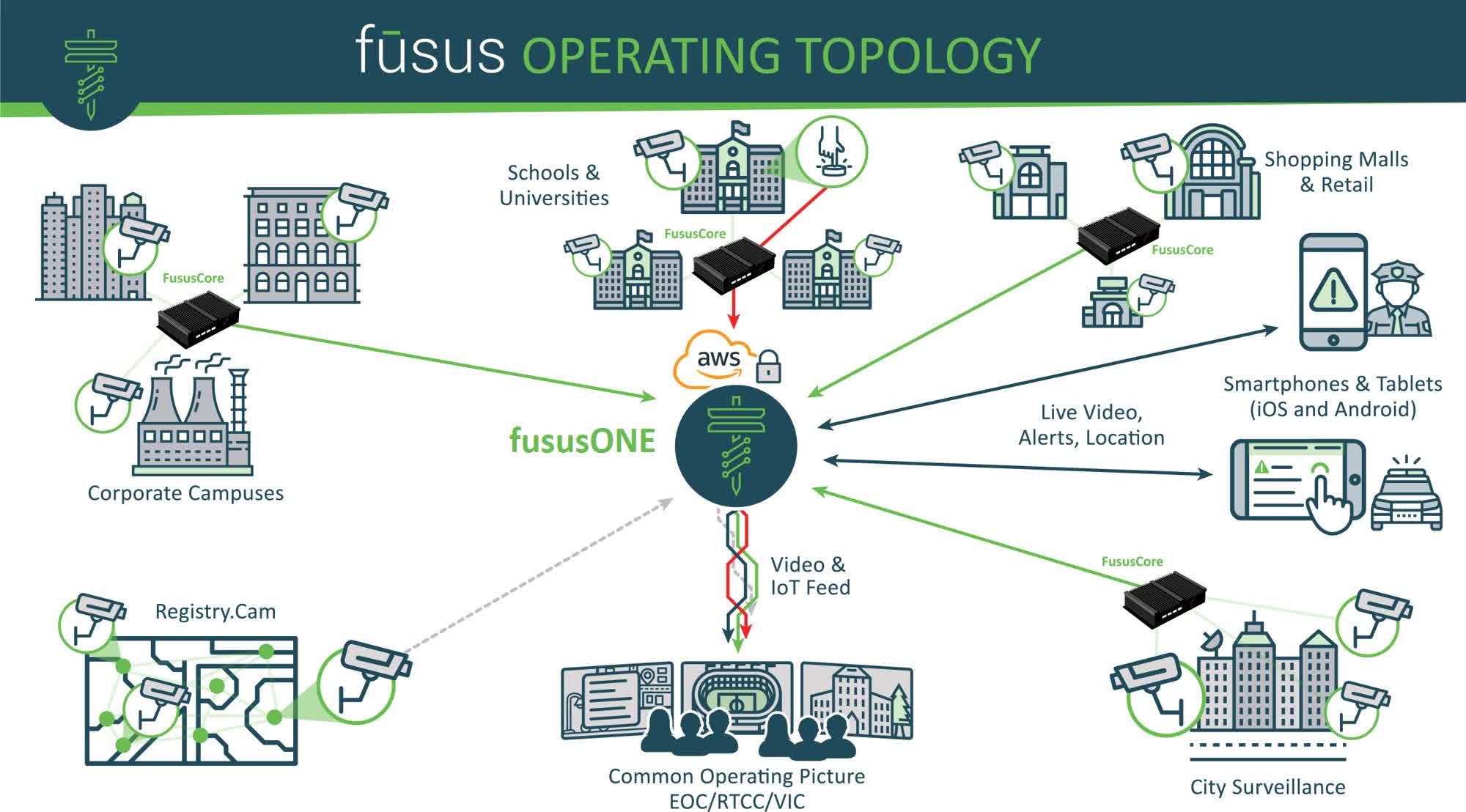[ad_1]
A hot potato: Fusus is a surveillance platform integrating public and private cameras into an accessible, cloud-based surveillance network. Law enforcement organizations tout the technology as an essential expansion of monitoring capabilities by creating a real-time crime lab. However, privacy advocates and civil rights watchdogs see it as a threat to the Fourth Amendment and a high-risk cybersecurity target full of personally identifiable information.
Fusus is designed to provide law enforcement organizations (LEO) and other public safety institutions access to accurate, relevant information via a cloud-based network of authorized video monitoring assets. The company claims the platform “enhances all public safety and investigations assets for law enforcement, first responders, and private security personnel.” The system began rolling out in several small participating cities and organizations in 2019, later expanding to a footprint of more than 33,000 supported cameras in more than 60 cities and counties nationwide.
Law enforcement and public safety professionals say the system gives them much-needed access to real-time incidents, allowing faster response times and decreased criminal activity without risking the safety of local contributors. For example, businesses and other organizations regularly receiving requests to review video footage for investigative purposes can choose to deploy specific hardware devices, known as FususCores, to their network. Once deployed, these devices make it possible to include the owner’s cameras in the area’s more extensive Fusus network.
The system then adds authorized camera feeds to FususOne, a map-based interface that combines all access points into a single feed. Access to this aggregated dashboard and its tools saves law enforcement and other first responders valuable time by directly accessing the cameras and information rather than going to the site and requesting permission to review the video.
The company says police and other officials do not have unfettered reign over the camera streams. The system relies on policy-based conditional access, which gives camera owners the final say regarding whether or not to grant or deny access to their camera streams. Fusus and its clients claim this makes the system a low-risk but high-return tool for expanding monitoring activities.

Opponents argue the platform creates a supersized network of cameras and personal data, increasing the potential for abuse and misuse. The Triad Abolition Project’s Nia Sadler cites the potential for over-policing areas already receiving increased attention and potentially (and unfairly) targeting minority groups, protestors, or others based on demographics or affiliations.
Albert Fox Cahn, founder of the Surveillance Technology Oversight Project (S.T.O.P.) in New York, believes Fusus creates many privacy and civil rights concerns to consider before implementation.
“Fusus takes surveillance tools that are constitutional on their own, and aggregates them into the kind of persistence tracking that is blatantly unconstitutional (when used by government bodies),” Cahn told Reuters.
From a technical standpoint, the amount of data aggregated in Fusus and the number of users accessing it raises concerns. The potential for exploiting connections to thousands of disparate feeds could make the technology a prime target for hackers looking to sow chaos or obtain unauthorized access to available personal or business information. If there’s one thing we’ve learned about cloud-based technologies – nothing is ever truly safe.
[ad_2]
Source link
